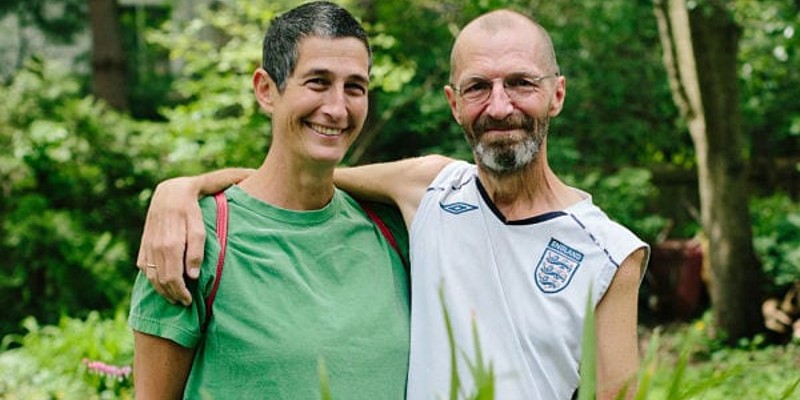August 8th.
That’s the day Ray Spooner decided would be the day he would die. As it became apparent that ALS was taking the last of his strength and his breath, and knowing he did not want extraordinary measures to be taken to keep him alive, a family friend suggested to his wife Rae that she ask him for a date, and her initial reaction was rather incredulous. “I said, what does that even mean?” But, after a short period of contemplation, Rae mentioned it to Ray and had an answer in 15 minutes.
August 8th.
Rae says that Ray was a bit of a control freak. It made sense that he would want some control over this too. It was late July, and they didn’t think he’d make it to August. Ray, however, had a plan. “He didn’t want to die on a Friday, Saturday, or Sunday, because it cost more for the funeral home. He wanted to make it to 57, because I would get more for life insurance, and he also chose that date so his family from England could come and spend some time with us.”
In Illinois, medical aid in dying is not an option, but removing support and making the dying person comfortable is, and that is what they did for Ray. He was not on a ventilator, but using a bipap machine to assist in breathing. By the time August 8th arrived, Ray was already quite close to the end.
“We surrounded Ray with family and friends, and made it as pleasant as we possibly could. We continued his theme of ‘I ain’t fucking dead yet’. We acted as if he was alive, not as if these were his last days.”
Many in the community know about Ray’s long career as a midwife, his epic bike ride across the country after his diagnosis in 2015, or the annual Ride for Ray event that benefits ALS research. Now, Rae shares the story of his death through the organization Compassion & Choices. On October 13th, Rae will be featured in a webinar for Compassion & Choices, Illinois. The seminar is free, and will be from 12 to 1:15 p.m. Compassion & Choices is a national non-profit organization that, according to their website, “improves care, expands options and empowers everyone to chart their end-of-life journey.” Locally, the Champaign-Urbana Action Team promotes education about end-of-life planning. Their members advocate for more choice. Says Jim Hannum, Action Team Leader, “members of our group have been active in contacting state legislators and members of state legislative districts to find out where legislators stand on medical aid in dying and to offer information when requested.”
According to the Compassion & Choices website, 10 states plus the District of Columbia allow some form of medical aid in dying. At one point, the Spooners considered relocating temporarily to another state to have access to this, but they didn’t want to be away from family and friends. Though they didn’t have every option on the table, the Spooners lived through the rest of Ray’s life in the only way they knew how: their way. Rae, an experienced birth doula, utilized those skills to “doula” Ray through the end of his life. “Ray had the kind of death that he had because his family and friends, but especially his family, respected him enough and respected his wishes enough to do what he wanted.”
Rae doesn’t know how much the accessibility of medical aid in dying would have made a difference in Ray’s end of life journey — maybe he would’ve decided to end things sooner — but she advocates for families to be able to plan for their deaths, however that might look. “There are people who want to have that kind of control. It is important for them to leave this world in a certain way, for whatever reason.” For Ray, he was a caretaker to the end. He wanted to leave the world knowing that his family was taken care of, not saddled with endless medical expenses and an extended period of grieving someone who was no longer there. For Rae, it’s about respecting each individual’s wishes. It’s the “choices” part of Compassion & Choices.
“I think the gentleness that Ray chose not only affected him and his passing, but affected the way we will live the rest of our lives. That was important to him. He was giving us a gift.”
If you’d like to hear more of Rae’s story, and learn about the work of Compassion and Choices, you can register for the webinar here. There will be a short film about Ray’s life and death, and then participants will have the opportunity to interact with Rae.
To get involved with the work of the local action team, you can email Jim Hannum at jwhannum@gmail.com. To volunteer at the national level, visit the Compassion & Choices website.








